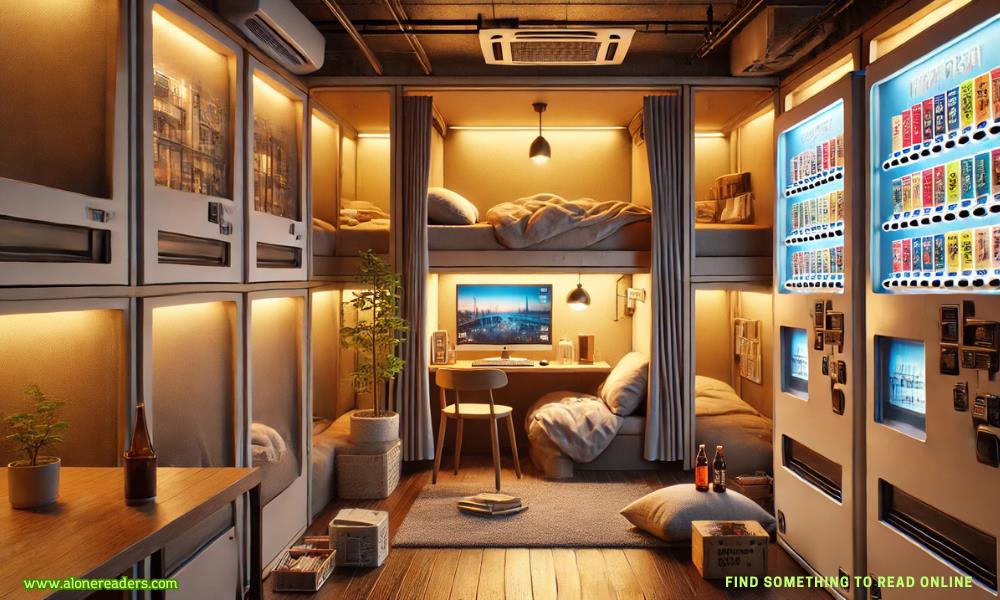
Japan, renowned for its bustling cities and innovative technology, harbors a unique and unexpected phenomenon: some people choose to live in internet cafés instead of traditional homes. This lifestyle, born out of economic necessity and the rising cost of housing, has become a modern alternative for those seeking affordability and convenience. These cafés, originally designed for short-term visits and online browsing, now cater to a niche population that utilizes their facilities as a substitute for permanent housing.
Internet cafés in Japan are unlike their counterparts in many other countries. They provide not just internet access but an array of amenities, including private cubicles, reclining chairs, showers, and vending machines stocked with snacks and drinks. Many cafés even offer laundry services and a variety of hot meals, turning them into makeshift living spaces. These facilities, combined with relatively low hourly or overnight rates, make them an appealing option for individuals who cannot afford traditional housing or are in between permanent residences.
The phenomenon of café living is particularly common among young workers and individuals in precarious employment situations. Part-time workers, freelancers, and those struggling with job instability often find themselves priced out of Japan’s competitive rental market. The cost of renting an apartment in major cities like Tokyo or Osaka can be prohibitively high, especially when factoring in upfront expenses such as security deposits, key money, and guarantor fees. In contrast, internet cafés offer a budget-friendly alternative, with some charging as little as 1,500 to 2,000 yen ($10–$15) per night, which often includes access to facilities like showers and free drinks.
For some, café living is a temporary solution during times of transition. It can provide a safe and affordable space while searching for a new job, saving for a more stable living arrangement, or escaping personal challenges. However, for others, this lifestyle has become a long-term reality. These individuals, often referred to as “net café refugees,” form a hidden segment of Japan’s population. Despite being employed, many struggle to secure a more permanent living situation due to low wages or unstable income.
Living in an internet café offers certain conveniences. Residents can access high-speed internet, entertainment options, and basic necessities without the commitment of a lease or the need for upfront costs. For individuals who prioritize flexibility or have minimal belongings, these spaces can feel like a practical choice. However, this lifestyle is not without its challenges. The lack of privacy, limited personal space, and absence of a permanent address can create obstacles, particularly when applying for jobs or government services that require a stable residence.
The rise of café living in Japan also sheds light on broader societal issues, including the widening gap between wages and living costs. Despite Japan’s reputation for economic stability, a significant portion of its workforce faces financial precarity, particularly in urban areas. The prevalence of non-standard employment contracts, coupled with the high cost of living, has left many unable to afford conventional housing. This has driven some to seek creative solutions, like café living, to make ends meet.
In response to this growing trend, some internet café chains have adapted their services to better accommodate long-term residents. They now offer monthly packages, larger cubicles, and improved amenities to cater to those who use the cafés as their primary living space. While these adjustments have made café living more comfortable for some, they also raise questions about the normalization of this unconventional lifestyle and the systemic issues that drive individuals to adopt it in the first place.
The concept of living in an internet café might seem unusual or even alarming to outsiders, but for many in Japan, it represents a practical and accessible solution to the challenges of modern urban life. It reflects not only the resilience and adaptability of individuals but also the need for a deeper conversation about affordable housing and economic support. Until these broader issues are addressed, internet cafés will likely continue to serve as an unlikely refuge for those navigating life on the margins.